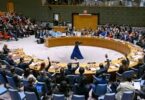Responding to the subjective critique from opposition political parties on the economy stabalisation reforms of PTI government under 13th IMF loan programme, Advisor on Finance Dr. Abdul Hafeez Sheikh showed mirror to them in his speech in parliament by reminding that last two governments of PPP and PML-N had also availed this facility. Elaborating his point of view, Advisor on finance rightly contended that no government wants to happily opt for IMF loan programme and the present government had to avail it due precarious economic situation that it inherited as legacy from the previous government. He claimed that present government is maintaining fiscal discipline which the whole world has acknowledged.
The contention is correct that PML-N had availed IMF loans for shoring up the depleting foreign currency reserves in its all three tenures of government. Likewise PPP governments did enter into loan programmes of this multilateral donor agency. In the second tenure of PML-N government former finance Minister Ishaq Dar used to provide fudged figures about the economy and implementation of IMF suggested economic reforms. In October 1999, they left the economy at the verge of default which the business community had been debating. Foreign exchange reserves had fallen to $400 million dollars. Imports were fast rising and exports nose-diving. It was because of fudging practice of Ishaq Dar that the succeeding government of President Musharraf had to pay a penalty of 10 million dollars to IMF. That government achieved the turnaround of economy within less than two years and did not need the support of IMF. Pakistan was no longer under IMF programme from 2001 to 2007.
It is the bad performance of major contributory sectors of the economy such as agriculture and industry that gave momentum to high price spiral and unemployment. The government failed to rein in the major stakeholders in cartels of food commodities. These stakeholders are present in the rank and file of ruling PTI and other two mainstream opposition political parties. Now the Competetive Commission of Pakistan has come into symbolic action against cartels and district administrations against hoarders and profiteer. But the fact remains that administrative price control measures provides short term solution against hoarding and profiteering. Long term solution lies in the formulation of workable agriculture and industrial policies to boost production to meet the increasing domestic demand of food commodities and essential consumers’ goods and create surplus for exports. The sharp decline in the production and declining sales of auto sector alone has turned out 40,000 workers from vendors industry besides creating a risk of lay off of thousand regular employees who are currently working in cars and, trucks and tractors assembly plants. The shrinking production activity in auto sector has shied away Nissan Motors Company from making investment in parts and components localization. Likewise, Renault Motors of France and Hundai Motors of South Korea have abandoned their investment plans to set up cars and trucks manufacturing plants in Pakistan.
Business leaders are continuously complaining against the sky-high electricity and gas tariffs. But the government has not shown spine to review shady power purchase agreement with IPPs made by the past governments. Likewise, stepping into the shoe of last PML-N government procedural formalities are not being fulfilled for the disbursement of Asian Development Bank sanctioned soft loan of $4.5 billion for up-gradation of ragtag electricity transmission and distribution systems to reduce the technical and transmission losses of 35 percent. Commitment charges of 0.5 percent are being paid on this loan since 2016. Moreover, government is reluctant to take action against the willful running defaulters of electricity bills and big pilfers. The cumulative losses of power sectors are being recovered from all categories of honest electricity consumers, forcing them to become new defaulters. The proposed National Electric Power Policy 2020 envisages total cost recovery formula, which will put unbearable additional burden on these electricity consumers if cost escalation factors such as capacity trap clause in power purchase agreements made with IPPs and technical losses in the transmission system are not effectively addressed. It is encouraging that finance ministry authorities have told the visiting IMF mission that further increase in electricity tariff is not possible and fuel price adjustment for the month of November has been deferred. However, incentive package consisting of reasonably low electricity and gas tariffs and interest rate is inevitable if turnaround of economy is desired.






